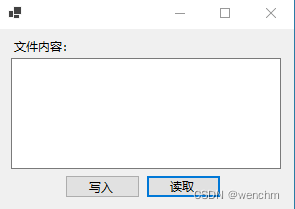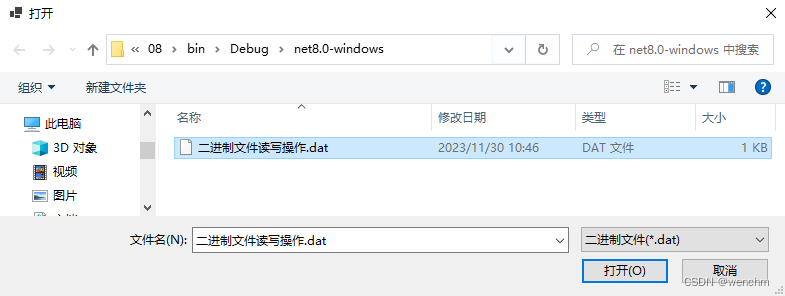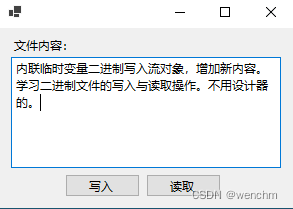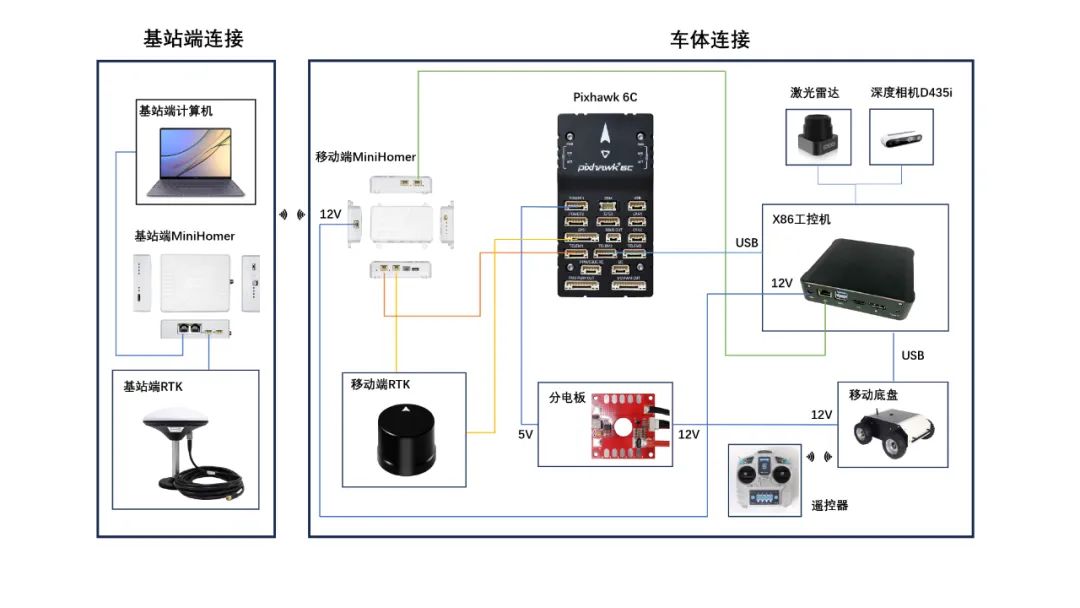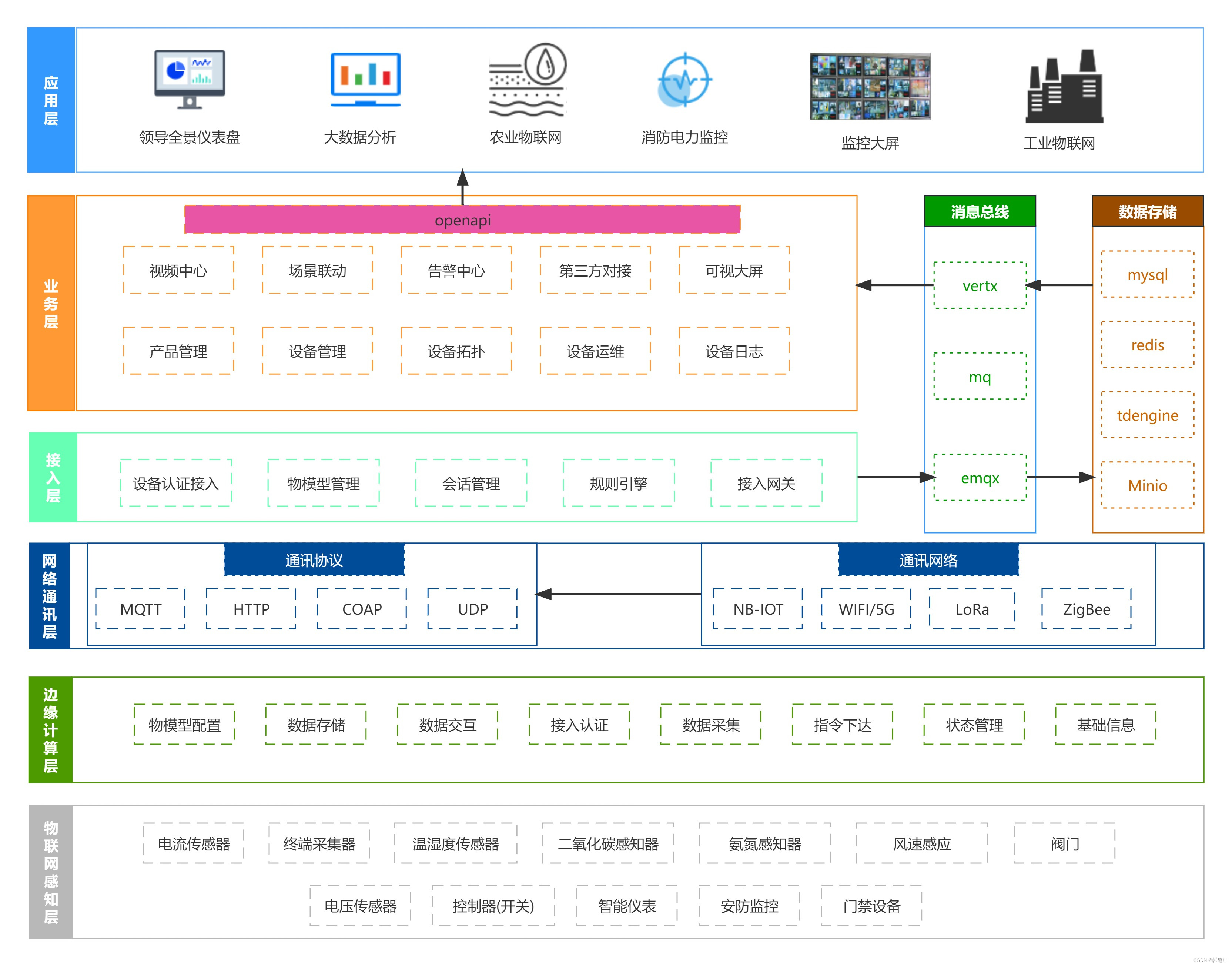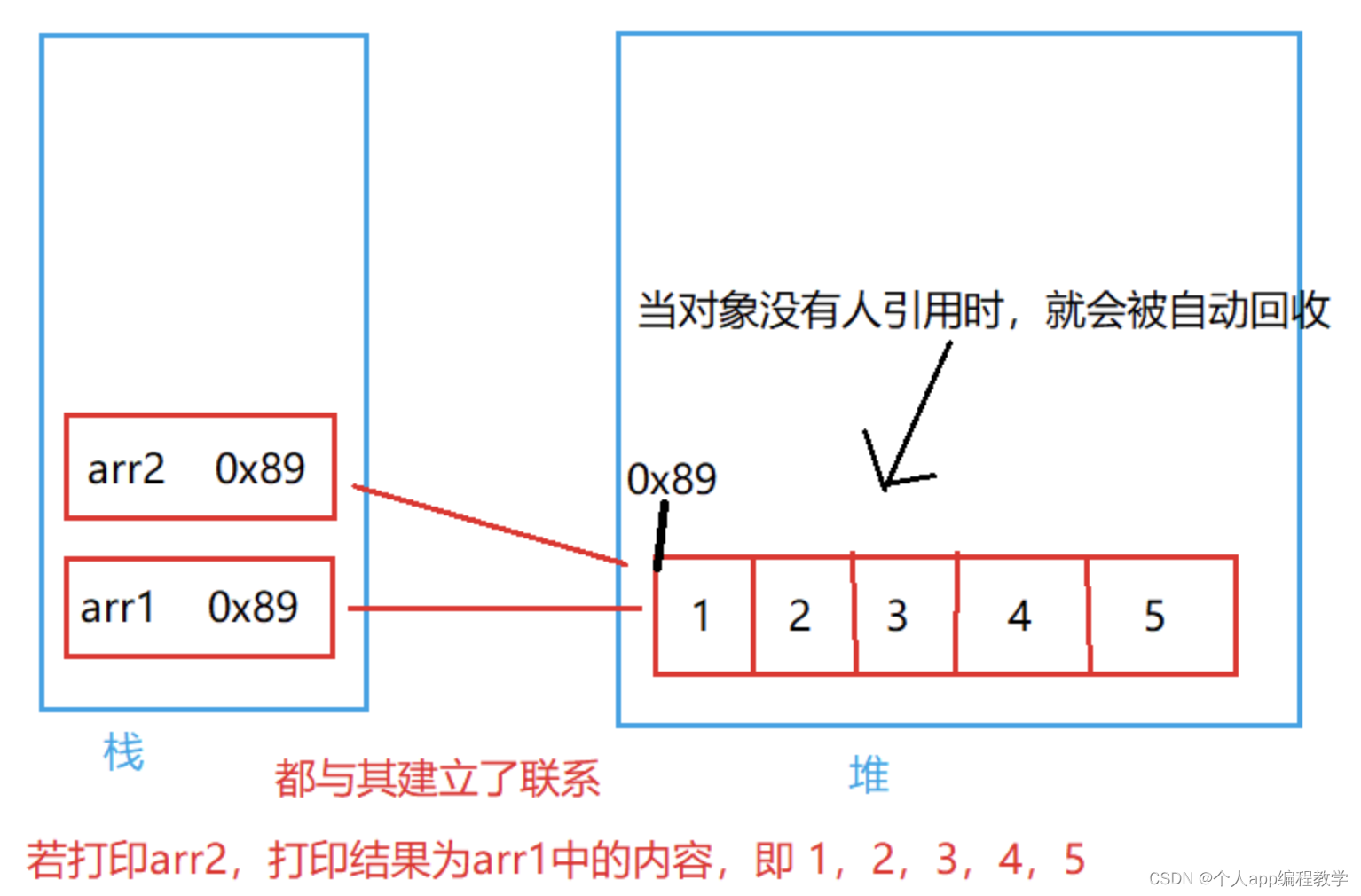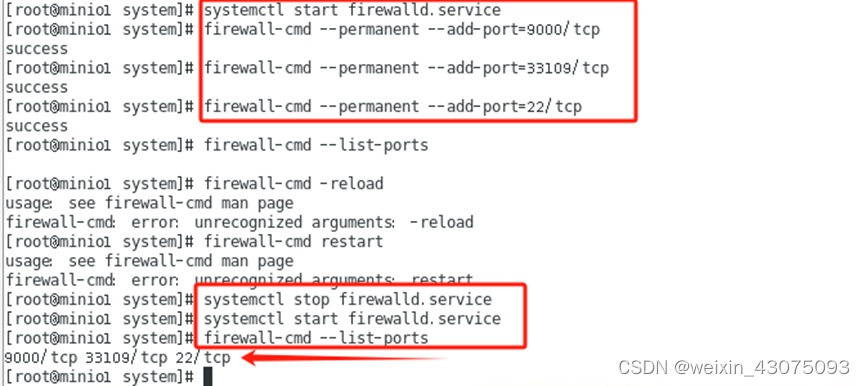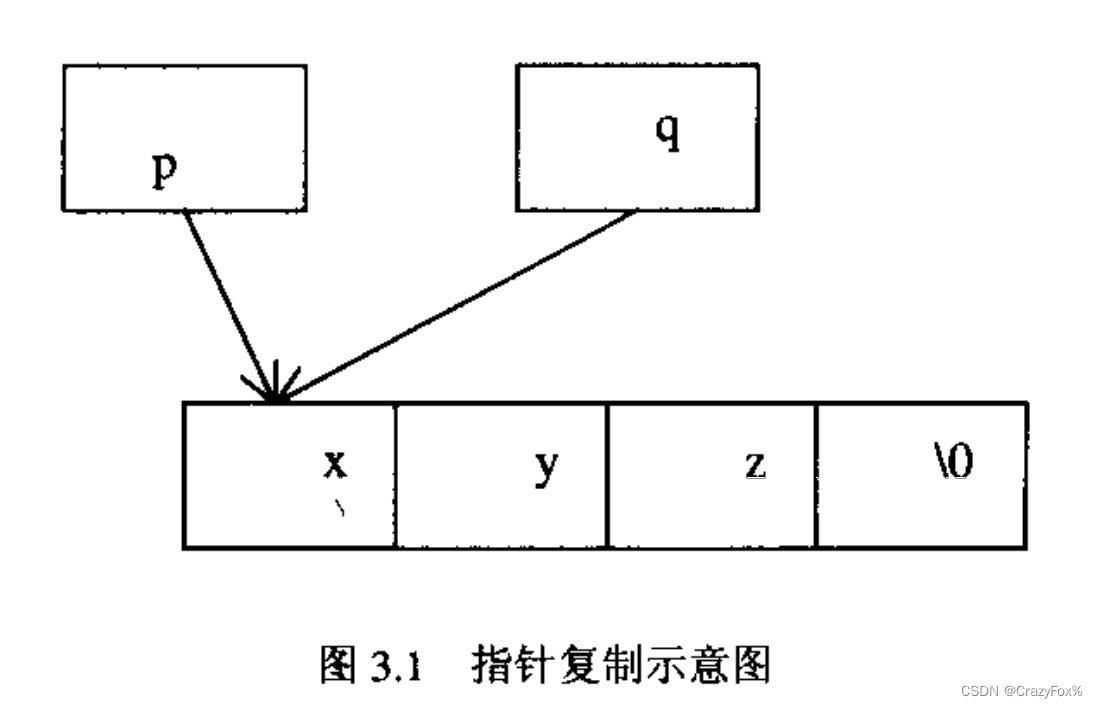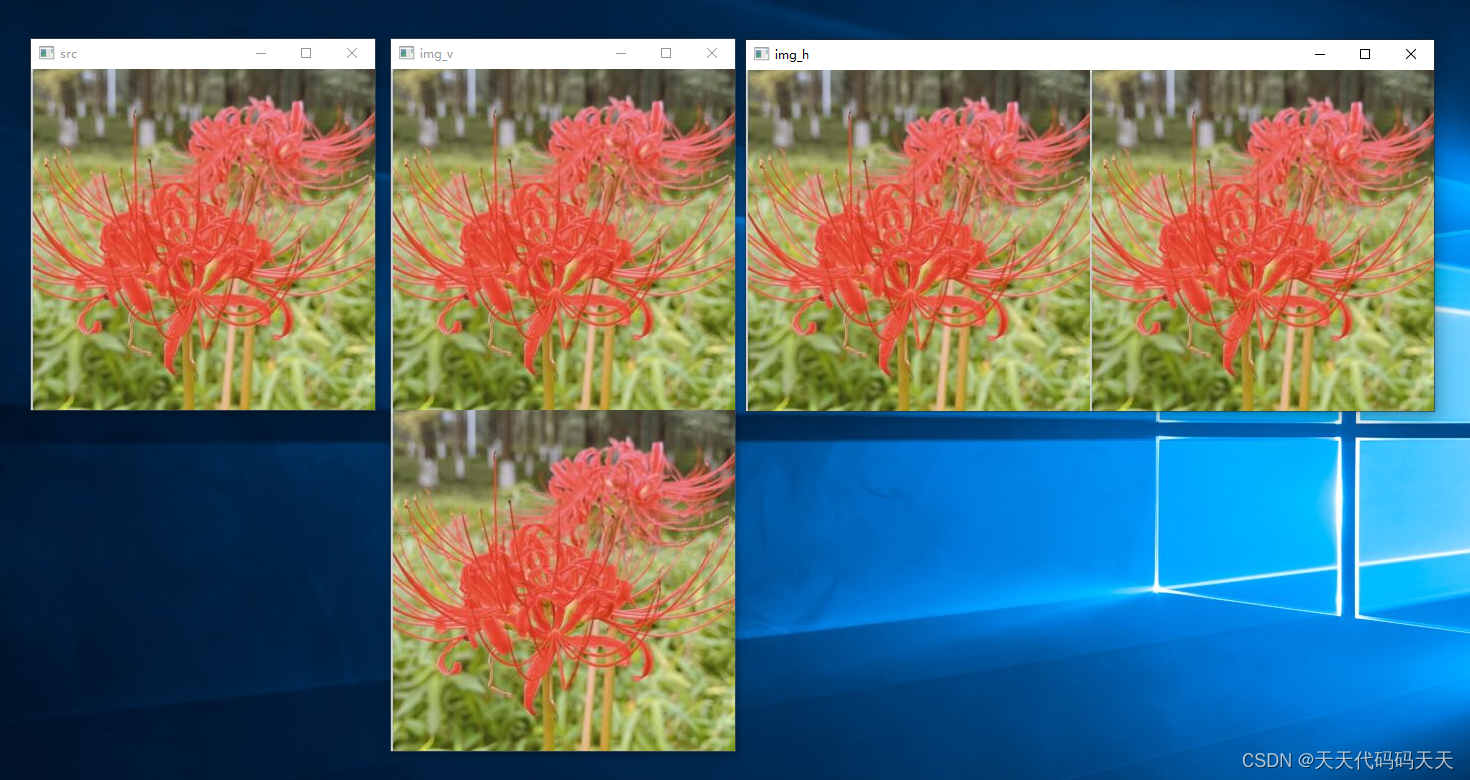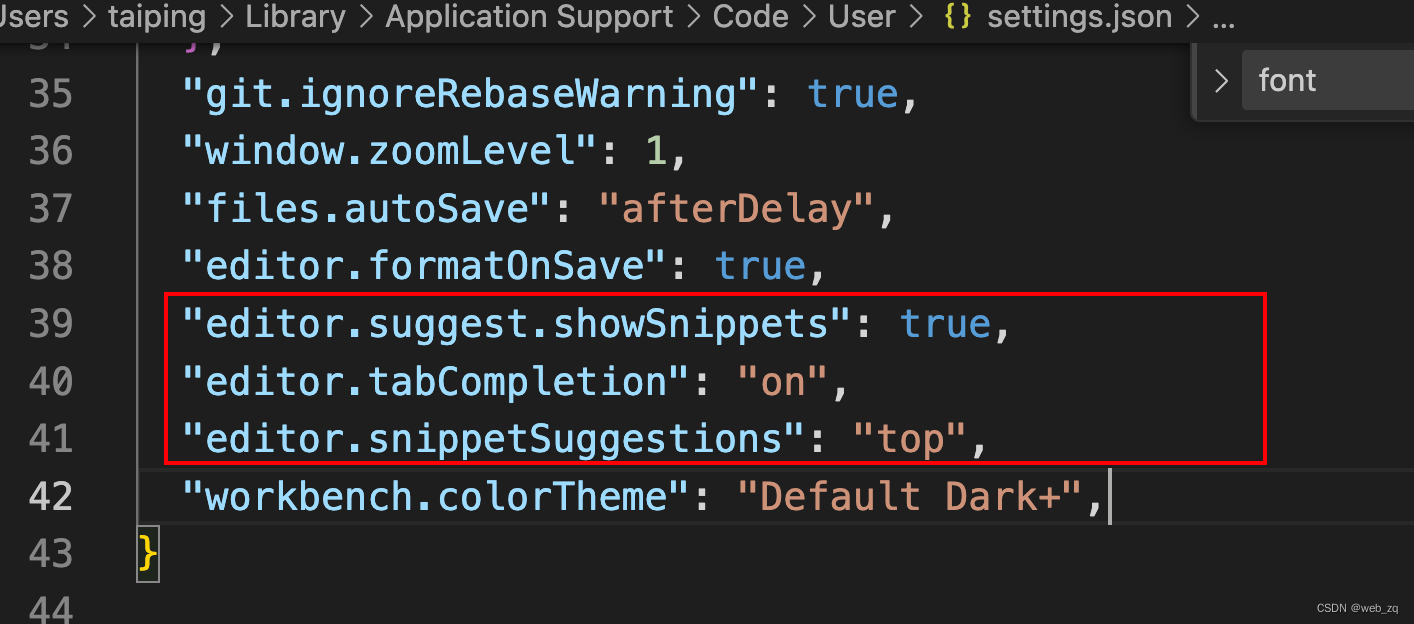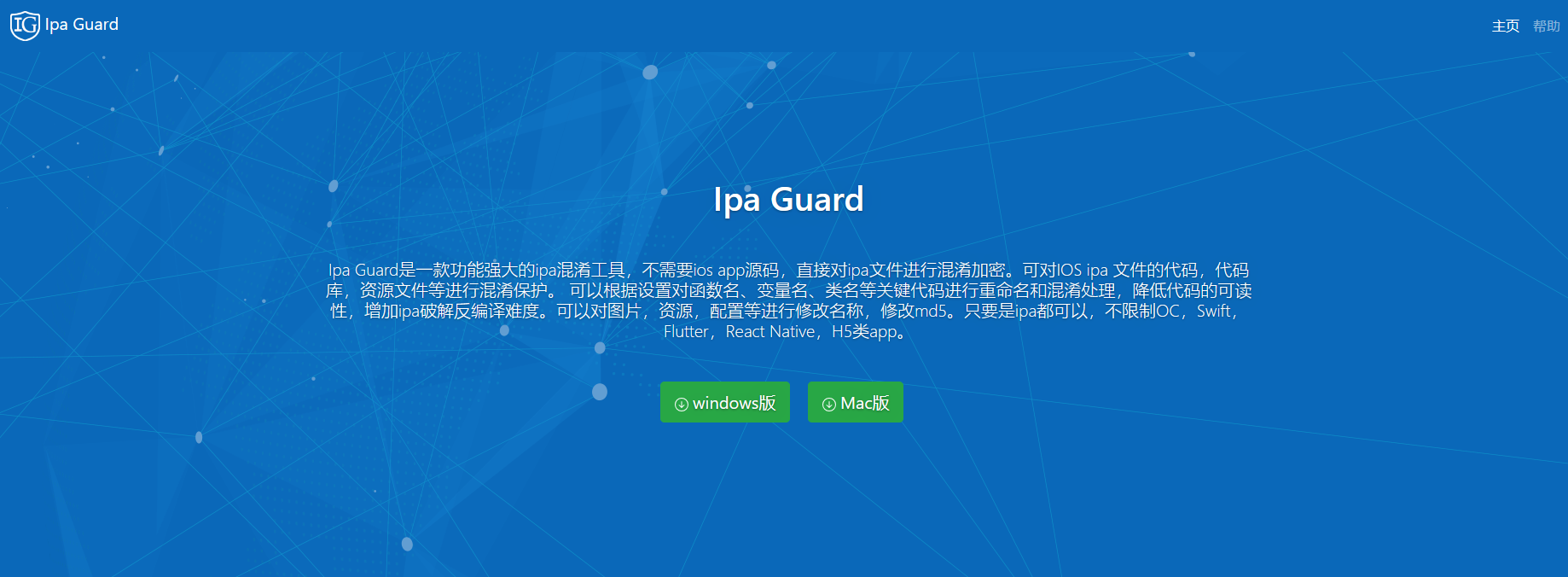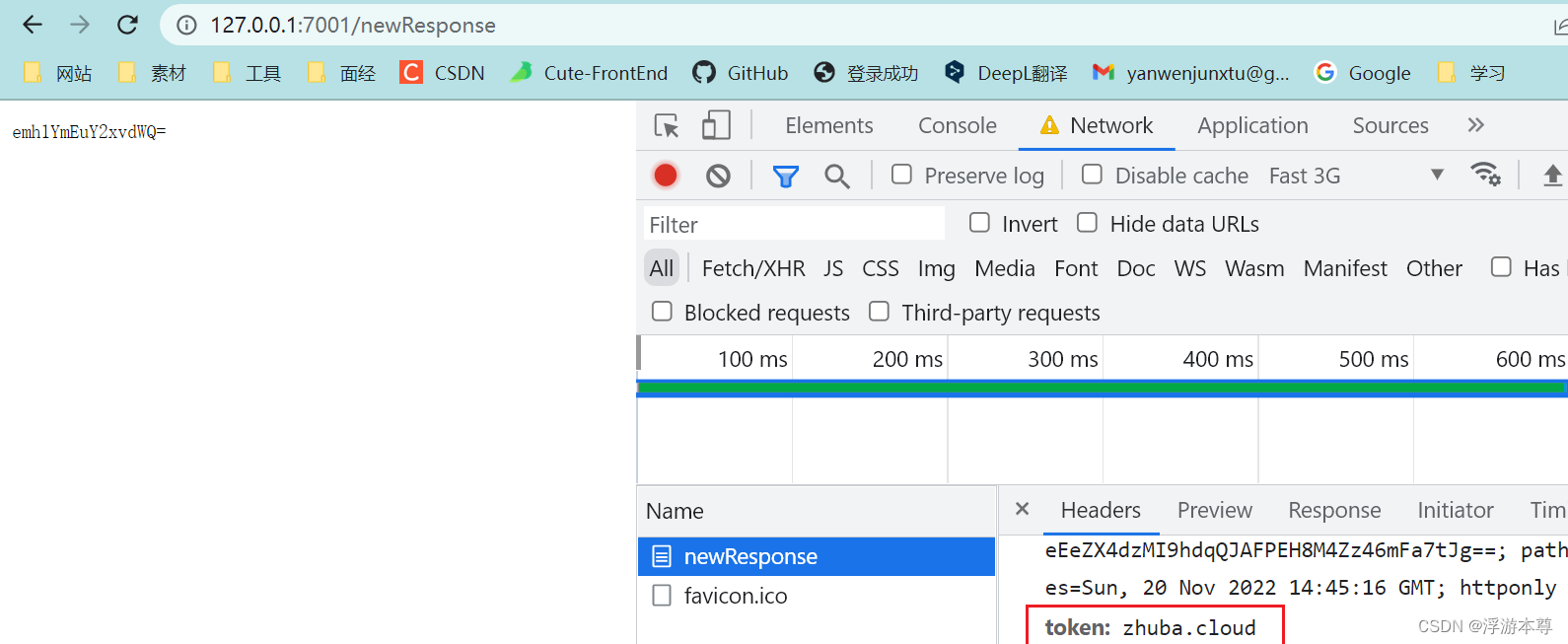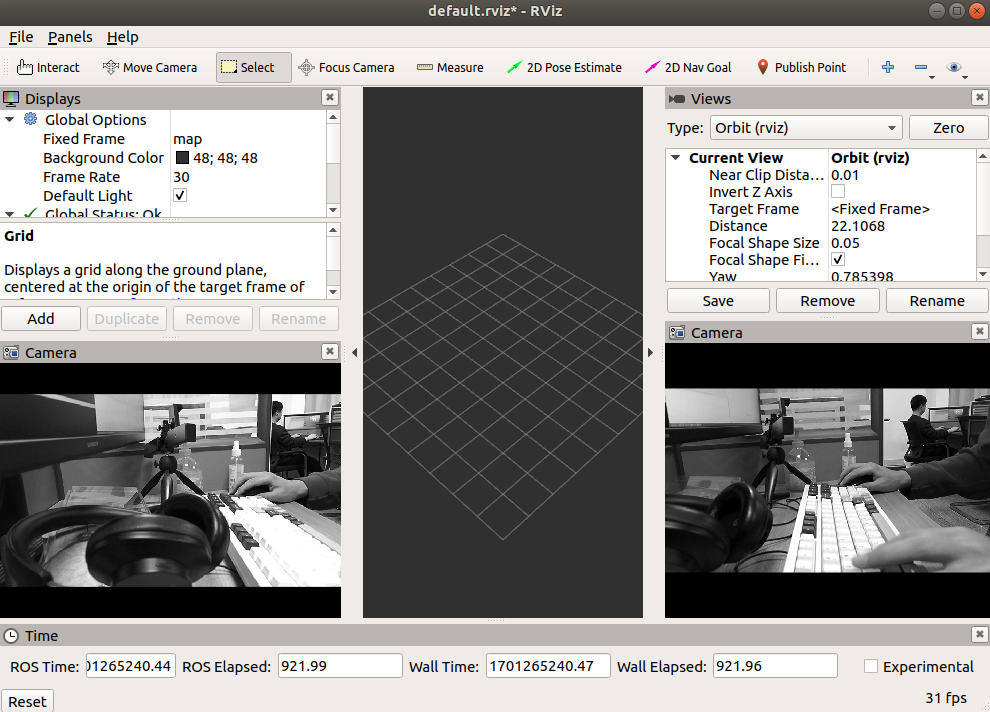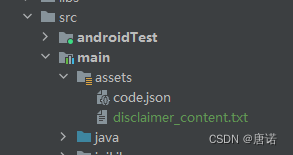目录
一、BinaryWriter类
二、BinaryReader类
三、示例
1.源码
2.生成效果
二进制文件的写入与读取主要是通过BinaryWriter类和BinaryReader类来实现的。
一、BinaryWriter类
BinaryWriter类以二进制形式将基元类型写入流,并支持用特定的编码写入字符串,其常用方法及说明:
| 方 法 | 说 明 |
| Close | 关闭当前的BinaryWriter类和基础流 |
| Seek | 设置当前流中的位置 |
| Write | 将值写入当前流 |
二、BinaryReader类
BinaryReader用特定的编码将基元数据类型读作二进制值,其常用方法及说明:
| 方 法 | 说 明 |
| Close | 关闭当前阅读器及基础流 |
| PeekChar | 返回下一个可用的字符,并且不提升字节或字符的位置 |
| Read | 从基础流中读取字符,并提升流的当前位置 |
| ReadBoolean | 从当前流中读取Boolean值,并使该流的当前位置提升一个字节 |
| ReadByte | 从当前流中读取下一个字节,并使流的当前位置提升一个字节 |
| ReadBytes | 从当前流中将count个字节读入字节数组,并使当前位置提升count个字节 |
| ReadChar | 从当前流中读取下一个字符,并根据所使用的Encoding和从流中读取的特定字符,提升流的当前位置 |
| ReadChars | 从当前流中读取count个字符,以字符数组的形式返回数据,并根据所使用的Encoding和从流中读取 的特定字符,提升当前位置 |
| ReadInt32 | 从当前流中读取4个字节有符号整数,并使流的当前位置提升4个字节 |
| ReadString | 从当前流中读取一个字符串。字符串有长度前缀, 一次将7位编码为整数 |
三、示例
1.源码
//文件流的二进制读写
//Windows窗体应用.NET8.0,不用设计器
namespace _08
{
public partial class Form1 : Form
{
private Button? button1;
private Button? button2;
private TextBox? textBox1;
private OpenFileDialog? openFileDialog1;
private SaveFileDialog? saveFileDialog1;
private Label? label1;
public Form1()
{
InitializeComponent();
Load += Form1_Load;
}
private void Button1_Click(object? sender, EventArgs e)
{
if (textBox1!.Text == string.Empty)
{
MessageBox.Show("要写入的文件内容不能为空");
}
else
{
saveFileDialog1!.Filter = "二进制文件(*.dat)|*.dat"; //设置保存文件的格式
if (saveFileDialog1.ShowDialog() == DialogResult.OK)
{
//使用“另存为”对话框中输入的文件名实例化FileStream对象
using (FileStream? myStream = new(saveFileDialog1.FileName, FileMode.OpenOrCreate, FileAccess.ReadWrite))
{
new BinaryWriter(myStream).Write(textBox1.Text); //内联临时变量二进制写入流对象
new BinaryWriter(myStream).Close(); //关闭当前二进制写入流
myStream.Close(); //关闭当前文件流
}
textBox1.Text = string.Empty;
}
}
}
private void Button2_Click(object? sender, EventArgs e)
{
openFileDialog1!.Filter = "二进制文件(*.dat)|*.dat"; //设置打开文件的格式
if (openFileDialog1.ShowDialog() == DialogResult.OK)
{
textBox1!.Text = string.Empty;
//使用“打开”对话框中选择的文件名实例化FileStream对象
using FileStream? myStream = new(openFileDialog1.FileName, FileMode.Open, FileAccess.Read);
if (new BinaryReader(myStream).PeekChar() != -1) //内联临时变量二进制写入流
{
textBox1.Text = Convert.ToString(
new BinaryReader(myStream).ReadString()); //以二进制方式读取文件
}
new BinaryReader(myStream).Close(); //关闭当前二进制读取流
myStream.Close(); //关闭当前文件流
}
}
private void Form1_Load(object? sender, EventArgs e)
{
// textBox1
textBox1 = new TextBox
{
Location = new Point(12, 29),
Multiline = true,
Name = "textBox1",
Size = new Size(270, 111)
};
// label1
label1 = new Label
{
AutoSize = true,
Location = new Point(12, 9),
Text = "文件内容:"
};
// button1
button1 = new Button
{
Location = new Point(66, 146),
Name = "button1",
Size = new Size(75, 23),
Text = "写入",
UseVisualStyleBackColor = true
};
button1.Click += Button1_Click;
// button2
button2 = new Button
{
Location = new Point(147, 146),
Name = "button2",
Size = new Size(75, 23),
Text = "读取",
UseVisualStyleBackColor = true
};
button2.Click += Button2_Click;
// openFileDialog1
openFileDialog1 = new OpenFileDialog
{
FileName = "openFileDialog1"
};
//saveFileDialog1
saveFileDialog1 = new SaveFileDialog();
//Form1
AutoScaleDimensions = new SizeF(7F, 17F);
AutoScaleMode = AutoScaleMode.Font;
ClientSize = new Size(295, 180);
StartPosition = FormStartPosition.CenterScreen;
Controls.Add(label1);
Controls.Add(textBox1);
Controls.Add(button2);
Controls.Add(button1);
}
}
}
2.生成效果
操作过程:因为我先前在当前目录下已经存过一个二进制文件了,所以:生成→ 读取→ 浏览到当前目录,并选择目录下的二进制文件,打开显示在文本框里。→ 编辑打开的文件,存储,可以另存为,也可以覆盖原文件。→ 再打开文件。
